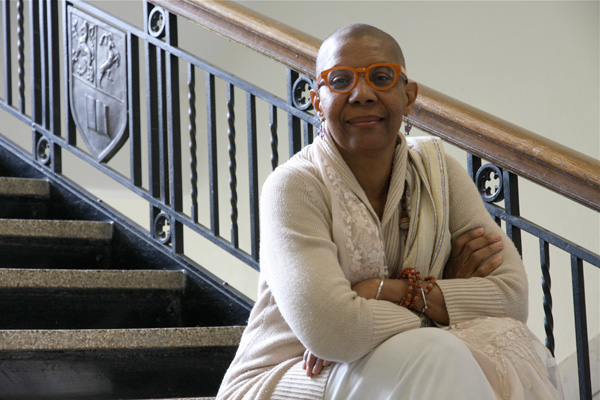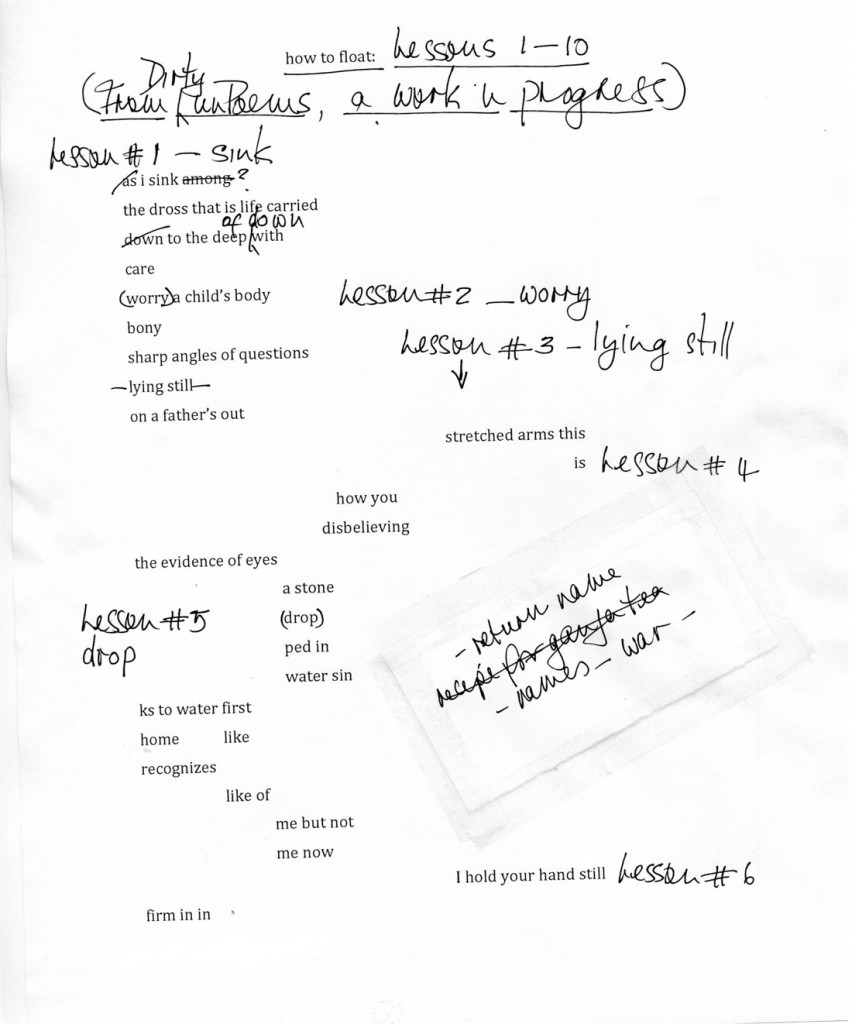5th Annual NAPOMO 30/30/30 :: Day 24 :: Alexandra Manglis on M. NourbeSe Philip
[box]It’s hard to believe that this is our FIFTH annual 30/30/30 series, and that when this month is over we will have seeded and scattered ONE HUNDRED and FIFTY of these love-letters, these stories of gratitude and memory, into the world. Nearly 30 books, 3 magazines, countless events and online entries later, and this annual celebration shines like a beacon at the top of the heap of my very favorite things to have brought into being. [If you’re interested in going back through the earlier 120 entries, you can find them (in reverse chronological order) here.]
When I began this exercise on my own blog, in 2011, I began by speaking to National Poetry Month’s beginnings, in 1966, and wrote that my intentions “for my part, as a humble servant and practitioner of this lovely, loving art,” were to post a poem and/or brief history of a different poet…. as well as write and post a new poem a day. I do function well under stricture, but I soon realized this was an overwhelming errand.
Nonetheless the idea stuck — to have this month serve not only as one in which we flex our practical muscles but also one in which we reflect on inspiration, community, and tradition — and with The Operating System (then Exit Strata) available as a public platform to me, I invited others (and invited others to invite others) to join in the exercise. It is a series which perfectly models my intention to have the OS serve as an engine of open source education, of peer to peer value and knowledge circulation.
Sitting down at my computer so many years ago I would have never imagined that in the following five years I would be able to curate and gather 150 essays from so many gifted poets — ranging from students to award winning stars of the craft, from the US and abroad — to join in this effort. But I’m so so glad that this has come to be.
Enjoy! And share widely.
– Lynne DeSilva-Johnson, Managing Editor/Series Curator [/box]
[line][line]
Alexandra Manglis on M. NourbeSe Philip

[line][script_teaser]”…her poetry has that quality, not just present with the dead, but teeming with different layers of reality, each undone word a specter to itself, each marginalia ghosting the main poem, the poem’s invisible draft and process made visible to its final form. To enter her poems is to experience multiple tenses in one place, is to be in a place where times and spaces are flickering in and out of each other, an experience in coruscated meaning.” [/script_teaser]
[line]
I can’t recall exactly when I first fell into M. NourbeSe Philip’s poetry, though I know it was definitely a falling in. That first page of Zong!, a looming wave of ocean made of language, letters rippling across the page to describe water; I let myself sink into it before realizing, in a panic, that this wasn’t sinking, this was dying, this was thirst and drowning all at once as I grasped for letters to make words. “w / ant” ends that first poem, a distillation of my first experience in the poem I realize later: I want to make sense of this, I want to see the whole picture, I want to sink, but I want to live, I want to not drown in the gaps. [line]

[line]This isn’t poetry that opens up spaces for you to breathe, this isn’t poetry that subtly unnerves, this is violent poetry, gaps of aggression, of untold horrors, of the abused, murdered nameless Africans who died across the Atlantic on slave ship. This is the tearing apart of historical legal documentation, law and history undone by poetry; the so-called art of making now emboldened into an act of creative destruction. As a reader, I had encountered nothing like this before.
And then, what greater pleasure is there in an editor’s life but to publish a poem from someone whose poetry you’ve been breathing through, trying to navigate, constantly coming back to? Philip sent me “Lessons 1-10,” published last September, which starts “how to float, lessons 1-10” as though Philip knew I needed this lesson after Zong!. “Lesson #1” she writes in a scrawl across the top of her typed poem, “sink.” And I am sinking again, into Philip’s poetry, only it feels this time like her words buffet me from water to airy heavens and down again, the surface of the page itself undulating through the other scraps of Philip’s penned words literally taped onto it, the tape captured in the soft grey of a scanner machine.
[line][articlequote]
ghostly trees
…..white or paper birch
poplar – the grey
[/articlequote][line]
is written on one particular scrap. So that the page I’m looking at, I realize, looks like a paper birch’s trunk: vertical, white, with grey and black stripes that happen to be words. I am struck by how the page, the scanner, the words, the texture, the color, is all one thing, one poem – a shape pulsating through the screen. Is it “ghostly” because the paper is posthumous tree, or is it “ghostly” because it glows off a monitor screen? [line]

[line] I am reminded that Philip calls Zong! “a work of haunting.” And her poetry has that quality, not just present with the dead, but teeming with different layers of reality, each undone word a specter to itself, each marginalia ghosting the main poem, the poem’s invisible draft and process made visible to its final form. To enter her poems is to experience multiple tenses in one place, is to be in a place where times and spaces are flickering in and out of each other, an experience in coruscated meaning.
What else can one do but sink in.
[line][line]
[textwrap_image align=”left”]http://www.theoperatingsystem.org/wp-content/uploads/2016/04/unnamed-1-e1461439807942.jpg[/textwrap_image] Alexandra Manglis wrote a doctorate on temporal reimaginings in Thoreau’s works. She’s an editor at Wave Composition and has published work at the Millions, the LARB, and the Oxonian.
[line]
[h5]Like what you see? Enter your email below to get updates on events, publications, and original content like this from The Operating System community in the field below.[/h5]
[mailchimp_subscribe list=”list-id-here”]
[line]
[recent_post_thumbs border=”yes”]


